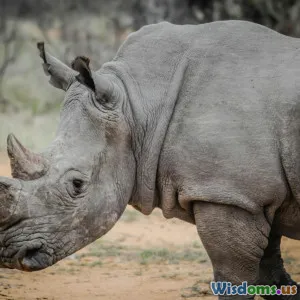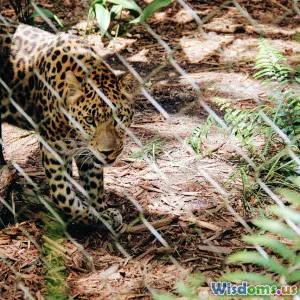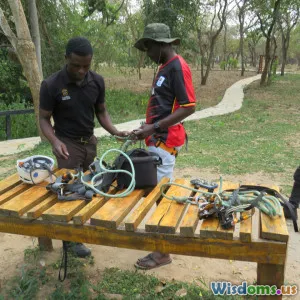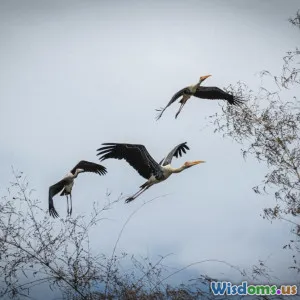
Ten Ways Tourists Can Support Conservation on African Safaris
9 min read Discover actionable ways tourists can actively contribute to conservation efforts during African safaris for lasting environmental impact. (0 Reviews)
Ten Ways Tourists Can Support Conservation on African Safaris
Introduction
An African safari is not just a journey into the wild; it’s a voyage into the heartbeat of nature’s most spectacular ecosystems. Every year, millions flock to the continent’s reserves and national parks to witness iconic wildlife like lions, elephants, and rhinos. However, the increasing pressures of habitat loss, poaching, and climate change are threatening these precious habitats. Tourists hold a powerful key to conservation—not merely as bystanders but as active participants. Understanding how to support conservation on safari can transform your travel experience from mere observation to meaningful impact.
In this comprehensive guide, we’ll delve into ten effective ways tourists can support conservation efforts on African safaris. Each approach is backed by real examples and insights to empower travelers to make a difference.
1. Choose Ethical and Conservation-Focused Safari Operators
The foundation of responsible safari travel lies in choosing tour operators committed to conservation. Many companies reinvest a significant portion of their proceeds into wildlife protection, anti-poaching units, and community development. For instance, &Beyond, a renowned luxury safari company, partners with local communities and funds Panthera’s anti-poaching projects for cheetah conservation.
Researching operators’ sustainability practices, certifications—such as the Tourism for Tomorrow Awards or GSTC Accreditation—and community involvement ensures your money supports conservation rather than exploitation. Opt for operators who limit group sizes to reduce habitat disturbance and those who adhere to strict wildlife viewing protocols.
2. Support Community-Based Conservation Initiatives
True conservation success integrates the welfare of local people with environmental protection. Community-based conservation projects, such as those in Namibia’s conservancies, legally empower communities to manage wildlife and benefit financially from sustainable tourism.
By choosing safari experiences that incorporate local guides, community lodges, or cultural tours, tourists help fund education, healthcare, and infrastructure while creating economic incentives to protect wildlife. According to the World Bank, community conservancies in Namibia have led to a 40% increase in wildlife populations, proving the effectiveness of this approach.
3. Practice Responsible Wildlife Viewing
Respecting wildlife is critical to conservation. Tourists should never approach animals too closely or disrupt their natural behavior. Always follow regulations such as maintaining recommended distances and shutting off engines when animals are near.
For example, in Kenya’s Maasai Mara, guides enforce strict no-approach rules around rhinos, which helps reduce stress and potential poaching risks. Observing animals quietly and avoiding flash photography reduces disturbance, ensuring animals continue their natural activities undisturbed.
4. Reduce Your Ecological Footprint
Travel, particularly international flights, contributes significantly to carbon emissions. Tourists can mitigate their impact by offsetting carbon footprints or choosing longer safari stays to maximize the value of each trip.
On the ground, minimizing water use, reducing plastic waste, and opting for eco-friendly accommodations make a tangible difference. Many safari lodges, like Chumbe Island Coral Park in Tanzania, incorporate solar energy, rainwater harvesting, and recycling programs, minimizing their ecological footprints.
5. Participate in Conservation and Research Activities
Many parks and reserves offer volunteer programs where tourists can engage directly with conservation activities. Participating in anti-poaching patrols, habitat restoration, or wildlife monitoring projects provides hands-on contributions and deepens appreciation for conservation challenges.
In South Africa’s Kruger National Park, tourists have volunteered for tracking endangered wild dogs to help gather critical data, aiding in population management and protection strategies. Engaging in these activities creates empowered eco-conscious ambassadors.
6. Educate Yourself and Others About Conservation Issues
Knowledge empowers advocacy. Before and during your safari, educate yourself about the ecological threats facing African wildlife, such as poaching, habitat fragmentation, and human-wildlife conflict.
Reading materials from organizations like the African Wildlife Foundation (AWF) or WWF Africa equips tourists to spread awareness among peers, social media followers, and future travelers. This ripple effect amplifies conservation messages and can influence demand for sustainable tourism.
7. Respect Local Cultures and Traditions
Conservation endeavors thrive when tourists honor the cultural values of indigenous peoples living alongside wildlife. Practices such as engaging respectfully, purchasing fair trade handicrafts, and learning about traditions foster goodwill.
The Maasai communities near Tanzania's Serengeti, for example, integrate sustainable livestock grazing with wildlife protection, illustrating harmonious human-wildlife coexistence. Tourists supporting these communities’ traditions help preserve cultural heritage entwined with conservation.
8. Minimize Use of Single-Use Plastics and Waste
Plastic pollution poses severe threats in wilderness areas where waste accumulation can harm animals and degrade habitats. Tourists should carry reusable water bottles, refuse plastic straws, and properly dispose of all waste.
Lodges like Saruni Samburu implement zero-plastic policies, composting organic waste and educating guests on reducing litter. Tourists aligned with these practices contribute to cleaner, healthier ecosystems.
9. Donate to Verified Conservation Organizations
Monetary donations provide critical support for anti-poaching units, habitat restoration, and species recovery programs. Choosing trustworthy organizations ensures funds are used effectively.
For example, the Great Elephant Census and Save the Rhino International rely heavily on donations to conduct surveys, fund patrol teams, and launch community awareness campaigns. Even small contributions from tourists can collectively have a big impact.
10. Advocate for Policy Change and Ethical Travel Practices Post-Safari
Conservation is a constant struggle involving political frameworks and global cooperation. Tourists returning from safaris can shape policy by advocating for stricter anti-poaching laws, sustainable travel policies, and increased funding for protected areas.
Writing to policymakers, supporting eco-labeling tourism initiatives, and pushing for transparency in the travel industry furthers long-term impact. Platforms such as social media and local conservation groups provide avenues to mobilize change.
Conclusion
Visiting Africa’s iconic landscapes offers awe-inspiring experiences but comes with the responsibility to protect these fragile environments. Each tourist holds individual power to contribute to conservation strategies that sustain wildlife and enrich local communities.
By carefully selecting ethical operators, respecting wildlife and cultures, reducing ecological impact, engaging in on-the-ground initiatives, and championing informed advocacy, travelers transform safaris from mere encounters to active conservation partnerships.
Remember, the footprints we leave behind—both literally and figuratively—will shape the future of Africa’s wild heritage. Travel thoughtfully and leave a legacy worth preserving for generations of explorers and wildlife alike.
References
- African Wildlife Foundation. (2020). Community Conservation in Namibia. https://www.awf.org
- WWF Africa. (2023). Reducing Plastic Pollution. https://wwf.panda.org
- Great Elephant Census. (2016). Population Data and Conservation Efforts. https://www.greatelephantcensus.com
- Tourism for Tomorrow. Awards and Certification Guides. https://wttc.org
- World Bank. (2019). Namibia Conservancy Success Report.
- &Beyond Safari Conservation Initiatives. https://www.andbeyond.com
Rate the Post
User Reviews
Popular Posts















